Garden Maintenance in Tooting
Introduction to Garden Maintenance
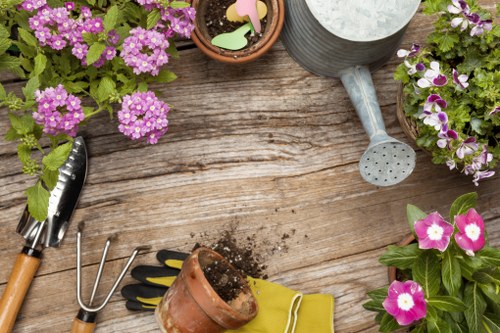
Maintaining a beautiful garden in Tooting requires dedication, knowledge, and the right resources. Whether you're a seasoned gardener or a beginner, understanding the essentials of garden upkeep can transform your outdoor space into a vibrant and relaxing haven.
Tooting, with its unique climate and soil conditions, offers both opportunities and challenges for gardeners. By adopting effective maintenance practices, you can ensure that your garden thrives all year round.
This guide explores the key aspects of garden maintenance in Tooting, providing practical tips and insights to help you achieve a lush and healthy garden.
Seasonal Garden Care
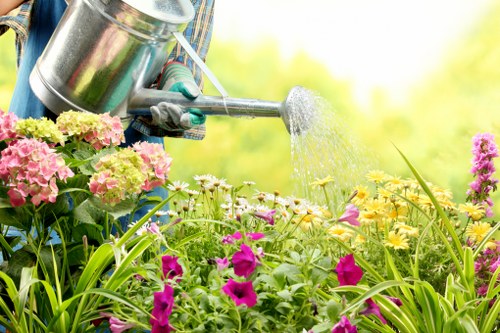
Proper garden maintenance involves understanding the seasonal changes and adjusting your care routines accordingly. Each season brings its own set of tasks that are crucial for the health and appearance of your garden.
Spring: The onset of spring is the perfect time for planting new flowers, pruning trees, and fertilizing your garden beds. This sets the foundation for a thriving garden throughout the year.
Summer: In summer, focus on regular watering, weeding, and pest control. Ensuring that your plants receive adequate sunlight and moisture is essential during the warmer months.
Essential Tools for Garden Maintenance
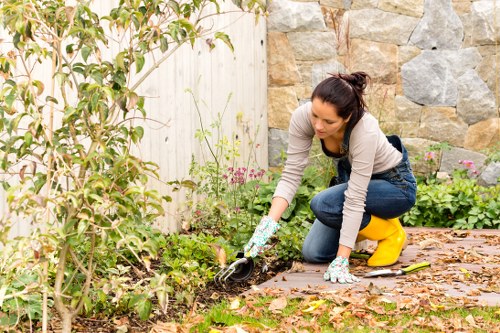
Having the right tools is fundamental to effective garden maintenance. Investing in quality equipment can make your gardening tasks easier and more efficient.
Basic Tools:
- Pruning shears
- Garden gloves
- Spade and fork
- Watering can or hose
- Lawn mower
These tools help in various tasks such as trimming plants, digging, and maintaining the lawn, ensuring that your garden remains neat and well-groomed.
Soil Health and Fertilization
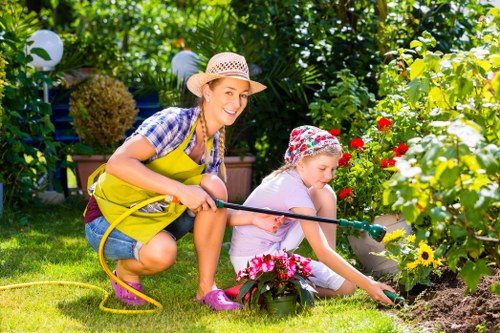
Healthy soil is the foundation of a thriving garden. In Tooting, understanding your soil type and its requirements can significantly impact your garden's success.
Soil Testing: Conducting a soil test helps determine its pH levels and nutrient content. This information is vital for selecting the right plants and fertilizers.
Organic Fertilizers: Applying organic fertilizers enhances soil fertility without harming the environment. Compost and manure are excellent choices for enriching your garden soil.
Plant Selection and Care
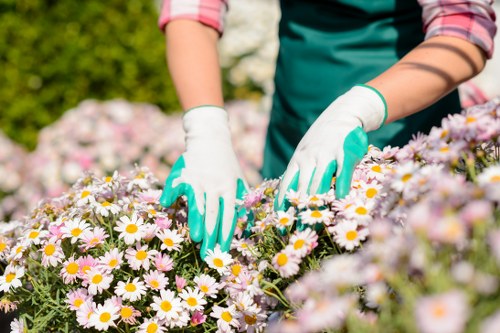
Choosing the right plants for your garden is crucial, especially considering Tooting's climate. Opting for native and resilient species can reduce maintenance efforts and ensure better growth.
Flowering Plants: Select a variety of perennials and annuals that bloom at different times to maintain color and vibrancy throughout the seasons.
Vegetable Gardens: If you prefer growing your own vegetables, choose crops that are well-suited to Tooting's weather conditions. Regular harvesting promotes continuous growth and productivity.
Weed Control Strategies
Weeds can quickly take over a garden if not managed properly. Implementing effective weed control strategies is essential for maintaining the beauty and health of your plants.
Manual Removal: Regularly inspect your garden and remove weeds by hand. This method is effective for small infestations and prevents weeds from seeding.
Mulching: Applying a layer of mulch around your plants suppresses weed growth, retains soil moisture, and improves soil health.
Pest Management
Protecting your garden from pests is vital for the well-being of your plants. Adopting an integrated pest management approach ensures effective control without harming beneficial insects.
Biological Control: Encourage natural predators like ladybugs and birds to inhabit your garden. They help in controlling pest populations naturally.
Chemical Control: Use pesticides sparingly and opt for eco-friendly options to minimize environmental impact. Always follow the instructions to ensure safe application.
Watering Techniques
Proper watering is a cornerstone of garden maintenance. Overwatering or underwatering can both be detrimental to plant health.
Drip Irrigation: Installing a drip irrigation system provides consistent moisture directly to the plant roots, reducing water wastage and promoting deep root growth.
Morning Watering: Watering your garden in the early morning allows plants to absorb moisture before the heat of the day, minimizing evaporation and fungal growth.
Lawn Care in Tooting
A well-maintained lawn enhances the overall appeal of your garden. Regular lawn care ensures that your turf remains green, dense, and resilient.
Mowing: Maintain an optimal mowing height to encourage strong root systems. Avoid cutting more than one-third of the grass blade length at a time.
Fertilizing: Apply lawn-specific fertilizers to provide essential nutrients, promoting healthy growth and color.
Pruning and Trimming
Regular pruning and trimming help in shaping plants, promoting new growth, and preventing diseases. It's important to prune at the right time and in the correct manner.
Spring Pruning: Remove dead or damaged branches to encourage healthy growth for the upcoming season.
Summer Trimming: Light trimming during summer helps maintain the desired shape and removes any overgrown parts.
Garden Design and Layout
Thoughtful garden design and layout contribute to the functionality and aesthetic appeal of your outdoor space. Planning the arrangement of plants, pathways, and features ensures a harmonious and inviting environment.
Pathways: Create clear pathways to navigate your garden easily while adding structure and charm.
Plant Grouping: Group plants with similar water and sunlight requirements together to simplify maintenance and enhance visual cohesion.
Professional Garden Services in Tooting
For those who prefer expert assistance, professional garden maintenance services in Tooting offer comprehensive care tailored to your garden's specific needs.
From regular mowing and pruning to specialized treatments, hiring experts ensures that your garden remains in top condition without the hassle.
Contact us today to learn more about our services and how we can help you achieve the garden of your dreams.

